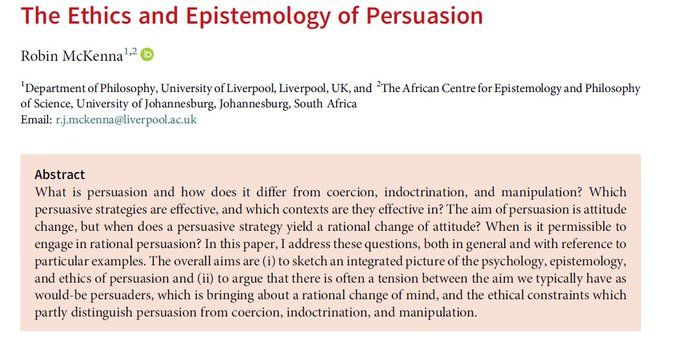Keith Raymond Harris
@kraymondh.bsky.social
840 followers
740 following
110 posts
Philosopher (social and applied epistemology, social media, misinformation, conspiracy theories)
Dog poster
Yoga guy
Posts
Media
Videos
Starter Packs
Pinned
Reposted by Keith Raymond Harris
Reposted by Keith Raymond Harris
Reposted by Keith Raymond Harris
Reposted by Keith Raymond Harris
Caro Flores
@floresophize.bsky.social
· Jul 29
Reposted by Keith Raymond Harris
Reposted by Keith Raymond Harris
Reposted by Keith Raymond Harris


















